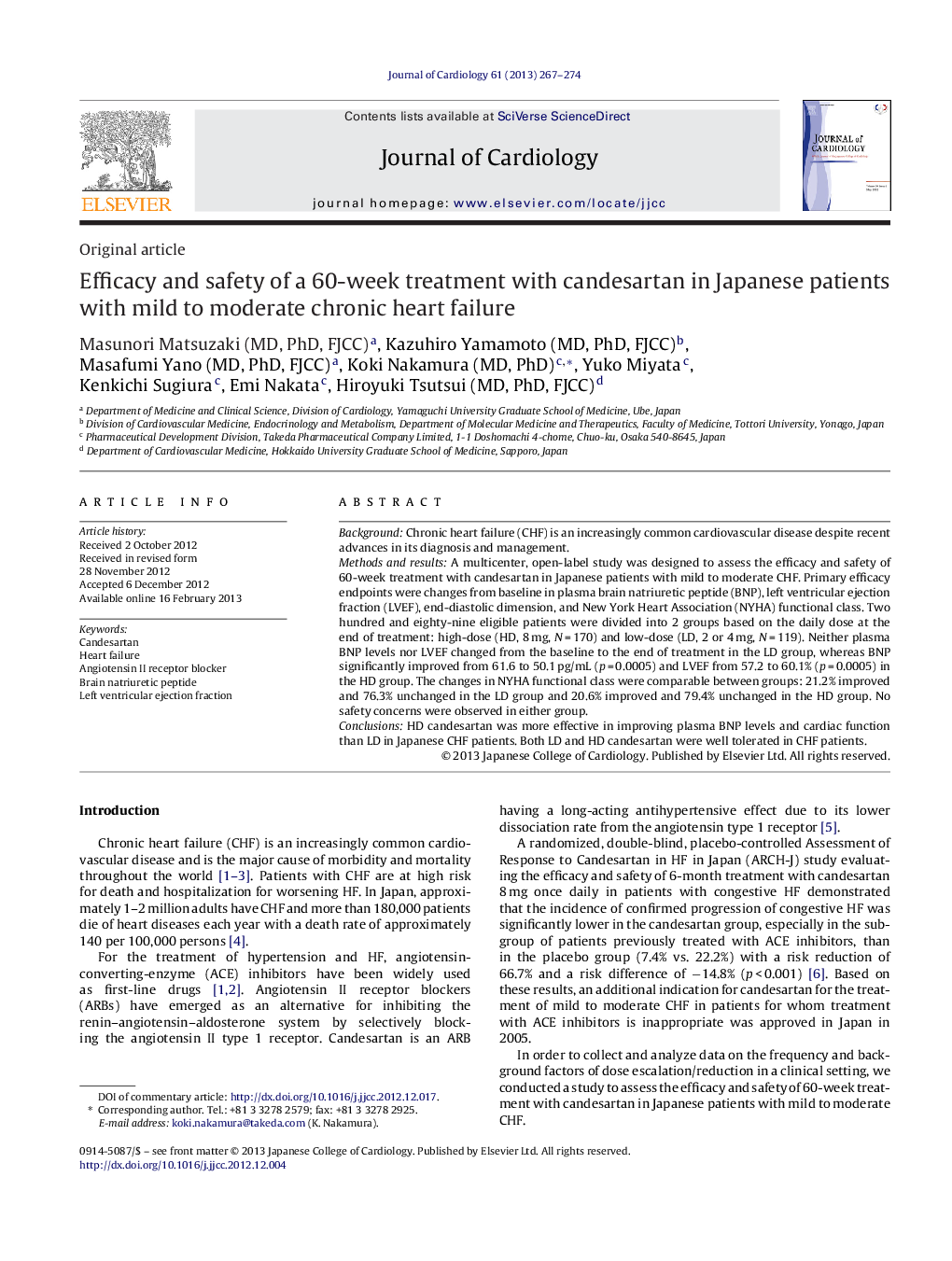| Article ID | Journal | Published Year | Pages | File Type |
|---|---|---|---|---|
| 5984175 | Journal of Cardiology | 2013 | 8 Pages |
BackgroundChronic heart failure (CHF) is an increasingly common cardiovascular disease despite recent advances in its diagnosis and management.Methods and resultsA multicenter, open-label study was designed to assess the efficacy and safety of 60-week treatment with candesartan in Japanese patients with mild to moderate CHF. Primary efficacy endpoints were changes from baseline in plasma brain natriuretic peptide (BNP), left ventricular ejection fraction (LVEF), end-diastolic dimension, and New York Heart Association (NYHA) functional class. Two hundred and eighty-nine eligible patients were divided into 2 groups based on the daily dose at the end of treatment: high-dose (HD, 8 mg, N = 170) and low-dose (LD, 2 or 4 mg, N = 119). Neither plasma BNP levels nor LVEF changed from the baseline to the end of treatment in the LD group, whereas BNP significantly improved from 61.6 to 50.1 pg/mL (p = 0.0005) and LVEF from 57.2 to 60.1% (p = 0.0005) in the HD group. The changes in NYHA functional class were comparable between groups: 21.2% improved and 76.3% unchanged in the LD group and 20.6% improved and 79.4% unchanged in the HD group. No safety concerns were observed in either group.ConclusionsHD candesartan was more effective in improving plasma BNP levels and cardiac function than LD in Japanese CHF patients. Both LD and HD candesartan were well tolerated in CHF patients.
